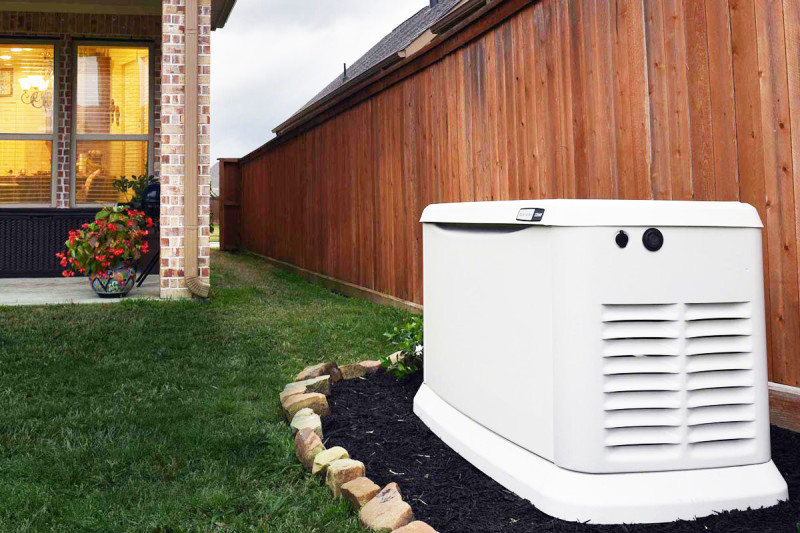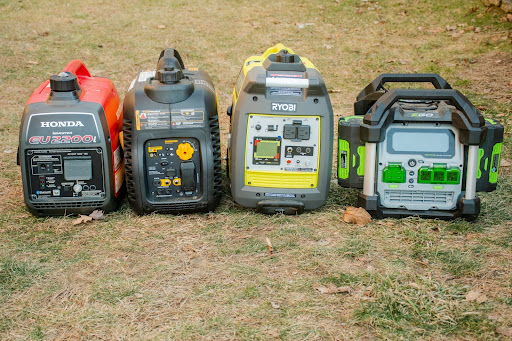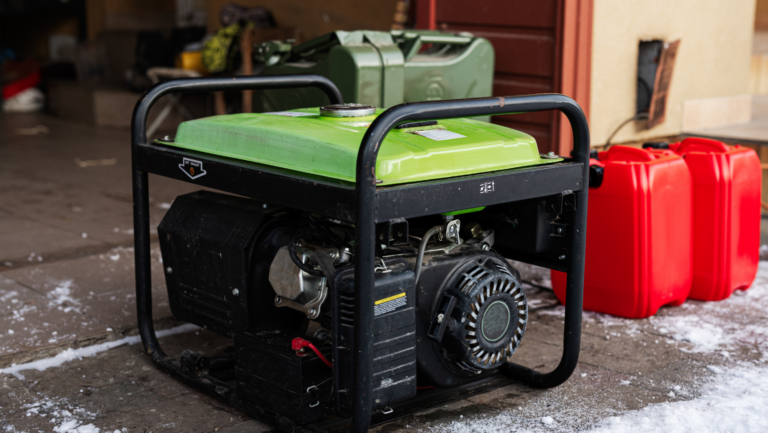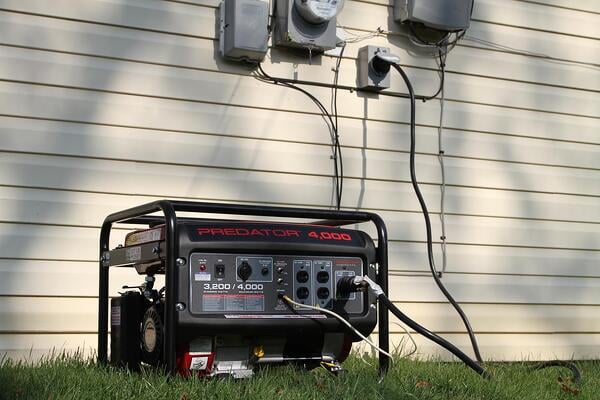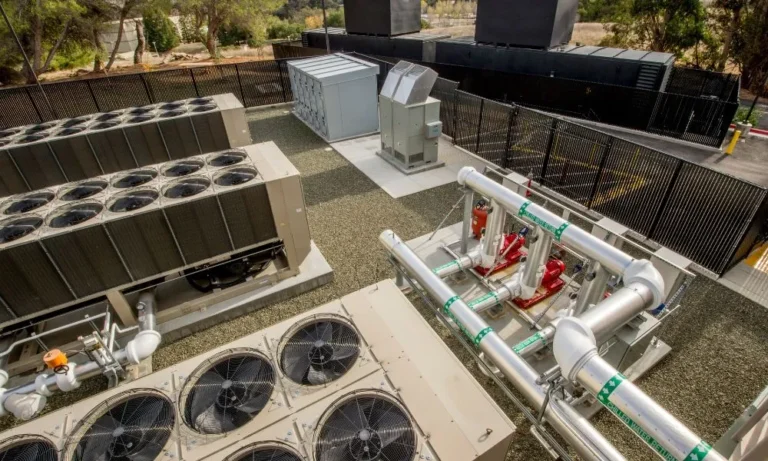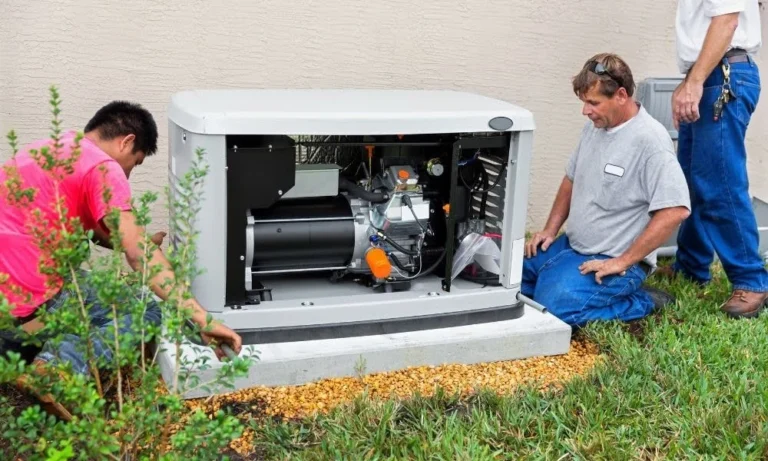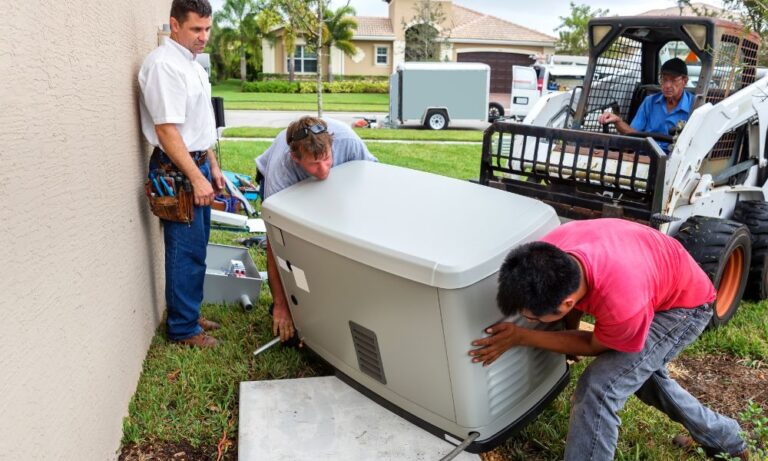The Power Behind Backup Generators: A Comprehensive Cost Guide
In a world where our daily routines heavily rely on electric power, the value of backup generators cannot be overstated. Whether it’s to keep your home comfortable during a storm or to ensure your business operations run smoothly during an outage, these power devices are a lifeline. But as you consider investing in one, you might ask yourself, ‘How much does a backup generator cost?’ It’s a valid question, and the answer is more complex than one might think.
A variety of factors influence the cost of a backup generator. Each element plays a significant role in the overall price, from the size and type of the generator to the installation costs. It’s also important to consider ongoing maintenance costs, which can add up over time. In this blog, we’ll delve into these influencing factors and provide a comprehensive cost guide to help you decide to purchase a backup generator.
Types of Backup Generators
Understanding the different types of backup generators can help you make an informed decision based on your needs and budget. There are two popular types, standby, and portable generators, each with their features and cost range.
Standby Generators
Standby generators are permanent fixtures that automatically kick in during a power outage. They’re connected directly to your home’s electrical system and are typically powered by natural gas or propane. Standby generators are ideal for uninterrupted power, especially in regions with frequent power outages.
Standby generators vary depending on size and brand, but you can expect to pay between $3,000 and $6,000. Remember, this doesn’t include installation costs, which can add significantly to the overall expense. Despite the higher upfront cost, their convenience and peace of mind make them a worthwhile investment for many homeowners.
Portable Generators
Portable generators are compact, movable units that can power specific appliances or systems during a power outage. They run on gasoline or diesel and are manually operated, meaning you must start them up and connect them to your appliances when needed. They’re a practical choice for occasional use, like during camping trips or small-scale power outages.
Portable generators are more affordable than standby generators, with prices ranging from $500 to $2,500, depending on the power output and brand. While they lack the convenience of automatic operation, their lower cost and versatility make them a popular choice for many households. Remember that running costs, such as fuel, should also be considered.
Determining Power Needs
When it comes to backup generators, determining your power needs is the first step. It’s important to assess which appliances and systems in your home are essential during a power outage. You may need to keep the lights on, the refrigerator running, and the heating or cooling system operational. You may also want to power up your home office equipment or medical devices. Understanding your power requirements will guide you in selecting the right generator size.
Choosing the right generator size is crucial. A generator that’s too small won’t be able to handle your power needs, leading to overload and potential damage. On the other hand, a generator that’s too large for your needs might lead to unnecessary fuel consumption and increased costs. The key is to balance your power needs and the generator’s capacity.
Fuel Sources
The fuel source of a generator is a pivotal aspect to consider when you’re in the market for a backup power solution. Different fuels like gasoline, diesel, and propane have unique cost considerations and advantages and disadvantages.
Gasoline Generators
Gasoline generators are prevalent due to the easy availability of gasoline. However, it’s important to remember that gasoline has a limited shelf life, and its prices vary widely. While gasoline is readily available and often less expensive than other fuels, its short shelf life and the need for safe storage can add to the overall cost. The fluctuating price of gasoline can also impact the running costs of the generator over time.
The primary advantage of gasoline generators is their convenience, as gasoline can be found in any local gas station. However, these generators are typically noisier and demand more frequent maintenance. Storing large quantities of gasoline can pose safety issues, and gasoline generators may start more slowly in colder climates.
Diesel Generators
Diesel generators are famous for their efficiency and durability. They usually provide more power per gallon of fuel compared to gasoline generators. Although diesel fuel might be more expensive than gasoline upfront, the superior efficiency of diesel generators can help balance the cost over time. It is also essential to consider the cost of storing diesel safely.
Diesel generators are generally more robust and require less maintenance than gasoline generators. They’re also known for their longevity and better fuel efficiency. However, they can be louder, and starting them up in cold weather might be challenging. Like gasoline, storing diesel fuel demands careful attention to safety.
Propane Generators
For a cleaner burning option, propane generators are an excellent choice. They’re often quieter and emit fewer pollutants than gasoline or diesel generators. Although propane might be more expensive than gasoline and diesel, it has an indefinite shelf life, making it ideal for long-term storage. Safe storage of propane cylinders should also be considered.
Unlike diesel or gasoline generators, propane generators are known to start up quickly in cold weather. They’re generally quieter, cleaner, and have a longer engine life. However, propane is highly flammable, requiring careful storage. Also, while propane has a long shelf life, once it’s in the tank, the generator should be run regularly to prevent issues with moisture build-up.
Brand and Model Variances
There are numerous generator brands in the market, each with unique features and benefits. Some popular brands include Generac, Briggs & Stratton, and Champion. These brands have built a reputation for reliability, durability, and performance. However, conducting thorough research and reading customer reviews before purchasing is always wise.
The brand of a generator can significantly affect its cost. Premium brands often come with higher price tags due to their advanced features, superior performance, and extended warranties. However, some lesser-known brands offer good value for money, providing reliable performance at a more affordable cost. Again, it’s about finding a balance between cost and quality.
Installation Costs
When installing a backup generator, you have two options: professional installation or DIY. While DIY can save you some money upfront, it requires a certain level of technical knowledge and can be time-consuming. Though more expensive, professional installation ensures that the job is done correctly and safely, protecting your investment in the long run.
Permit and inspection costs are also part of the installation process. These costs vary depending on your location and the size of the generator. Some municipalities require a permit before installing a generator, while others mandate an inspection after installation. It’s important to factor in these costs when budgeting for your generator purchase.
Maintenance Expenses
Like any other machine, a backup generator requires regular maintenance to run efficiently. Routine maintenance includes changing the oil, replacing filters, and checking the battery. While the homeowner can do some of these tasks, others may require professional service, adding to the overall cost of owning a generator.
Unexpected repair costs can also add up over time. Although a well-maintained generator should last many years, parts can wear out and need replacement. Depending on the severity of the issue, repair costs can range from minor to significant. It’s wise to set aside some funds for potential repair expenses.
Additional Features Impacting Cost
Modern backup generators come with various additional features that can impact cost. One such feature is the automatic transfer switch, which automatically switches the power source from the primary grid to the generator during a power outage and vice versa when power is restored. This feature provides convenience and peace of mind but can add to the initial cost of the generator.
Noise reduction technology is another feature to consider. Generators can be loud, and a model with noise-reduction technology can make a significant difference, especially in residential areas. However, this technology usually comes at a premium.
Finally, some generators offer mobile monitoring apps. These apps allow you to monitor and control your generator from your smartphone, providing an added layer of convenience. While not a necessity, this feature may be worth considering if you value the ability to manage your generator remotely.
Summary of Cost Factors
Understanding backup generators’ types and fuel sources is integral to making an informed decision. Whether you opt for a standby generator for seamless power transition during outages or a portable one for flexibility and affordability, the choice ultimately depends on your specific needs and budget. Similarly, gasoline generators might be easy to refuel, diesel generators offer more power per gallon, and propane generators provide a cleaner burn and longer shelf life. Each option has unique cost implications and pros and cons that should be carefully considered.
Remember, a backup generator is a significant investment that can offer you peace of mind during power outages, ensuring your home’s essential systems run smoothly. While the upfront cost might seem steep, the long-term benefits often outweigh the initial expense, especially in areas prone to frequent power disruptions. The key is to consider all factors, including the type of generator, fuel source, and associated costs, to find the right fit for your home.

